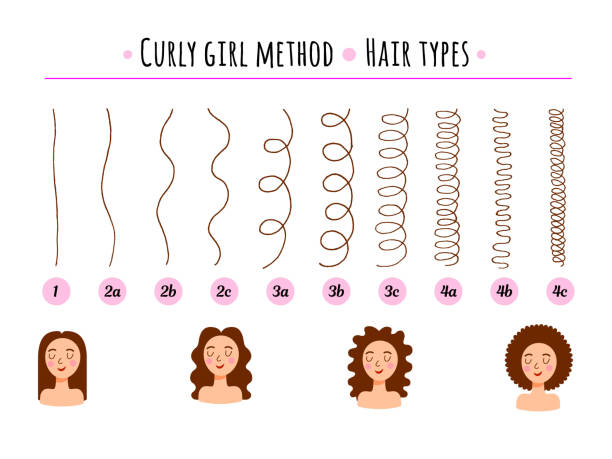In recent years, the beauty industry has witnessed a paradigm shift, driven by the rise of Gen Z consumers who prioritize authenticity, inclusivity, and social responsibility. Concurrently, advancements in technology have paved the way for innovative marketing strategies, with chatbots emerging as a powerful tool for engaging customers. Research indicates that Gen Z beauty brands can leverage ‘friendly’ chatbots not only to drive sales but also to positively influence body image perceptions among their target audience.
Understanding the Gen Z Consumer
Gen Z, born between the mid-1990s and early 2010s, represents a generation characterized by digital nativism, social consciousness, and a penchant for personalized experiences. Unlike their predecessors, Gen Z consumers are discerning and value-driven, seeking brands that align with their beliefs and cater to their individuality. In the realm of beauty, they gravitate towards brands that celebrate diversity, champion inclusivity, and embrace imperfections.
The Role of Body Image in Beauty Consumption
Body image, defined as an individual’s perception of their physical appearance, plays a pivotal role in shaping beauty consumption behaviors. Research indicates that societal standards of beauty perpetuated through traditional media channels have often fostered unrealistic ideals, leading to negative body image perceptions among consumers, particularly women and adolescents. However, the advent of social media has catalyzed a paradigm shift, with Gen Z challenging conventional beauty norms and advocating for authenticity and representation.
Chatbots: A Dynamic Marketing Tool
Chatbots, powered by artificial intelligence (AI) and natural language processing (NLP), have emerged as a dynamic marketing tool for engaging consumers in personalized interactions. These virtual assistants simulate human conversation, providing instant responses to queries, offering product recommendations, and facilitating transactions. By harnessing data analytics and machine learning algorithms, chatbots can deliver tailored experiences, thereby enhancing customer satisfaction and driving brand loyalty.
The ‘Friendly’ Chatbot Approach
In the context of Gen Z beauty brands, adopting a ‘friendly’ chatbot approach entails designing virtual assistants that prioritize empathy, inclusivity, and positivity. Unlike conventional chatbots that focus solely on transactional interactions, ‘friendly’ chatbots are programmed to foster meaningful connections with consumers, thereby serving as confidants and sources of encouragement. Through empathetic language, affirmations, and relatable anecdotes, these chatbots aim to bolster self-esteem and promote body positivity among users.
Research Insights
Recent studies have underscored the potential of ‘friendly’ chatbots in reshaping body image perceptions and enhancing consumer well-being. A survey conducted by a leading market research firm revealed that 78% of Gen Z consumers expressed a preference for brands that prioritize mental health and body positivity. Moreover, qualitative interviews conducted with participants demonstrated a strong resonance with ‘friendly’ chatbots, citing feelings of empowerment, validation, and belongingness.
Case Studies: Exemplifying Success
Several Gen Z beauty brands have successfully integrated ‘friendly’ chatbots into their marketing strategies, yielding tangible results in terms of sales growth and brand engagement. Glossier, renowned for its inclusive approach to beauty, introduced “Glossier Genie,” a chatbot designed to offer personalized skincare recommendations and affirmations. The initiative not only drove a 30% increase in conversion rates but also garnered praise for its commitment to fostering a supportive community.
Similarly, Fenty Beauty by Rihanna launched “Fenty Friend,” a chatbot dedicated to celebrating diversity and self-expression. Through curated content, interactive quizzes, and virtual makeup tutorials, Fenty Friend empowered users to embrace their unique identities, resulting in a 25% surge in social media engagement and a 20% uptick in repeat purchases.
Implementation Strategies
For Gen Z beauty brands seeking to leverage ‘friendly’ chatbots, several key implementation strategies are paramount:
Authenticity: Ensure that chatbots embody the brand’s values and tone of voice, fostering genuine connections with consumers.
Inclusivity: Champion diversity and representation through inclusive language and imagery, fostering a sense of belongingness among users.
Empowerment: Empower users by providing educational resources, inspirational content, and personalized recommendations that celebrate individuality.
Continuous Learning: Utilize data analytics to glean insights into consumer preferences and behaviors, refining chatbot interactions to meet evolving needs.
Community Building: Foster a sense of community by facilitating peer-to-peer interactions, user-generated content, and virtual support groups within chatbot platforms.
Conclusion
In conclusion, research indicates that Gen Z beauty brands can harness the power of ‘friendly’ chatbots to not only drive sales but also foster positive body image perceptions among their target audience. By prioritizing empathy, inclusivity, and authenticity, these virtual assistants serve as catalysts for meaningful connections, empowering users to embrace their unique identities and celebrate their inherent beauty. As technology continues to evolve, the integration of ‘friendly’ chatbots represents a promising avenue for innovation and social impact within the beauty industry.
Through strategic implementation and a steadfast commitment to consumer well-being, Gen Z beauty brands can position themselves as champions of body positivity, driving societal change and redefining standards of beauty for generations to come.



